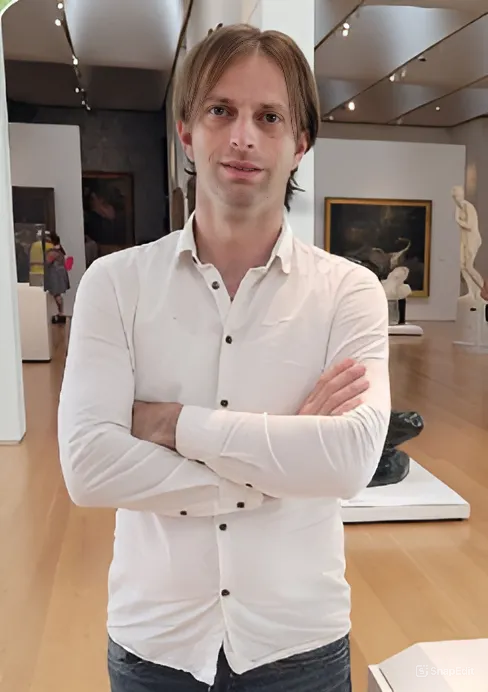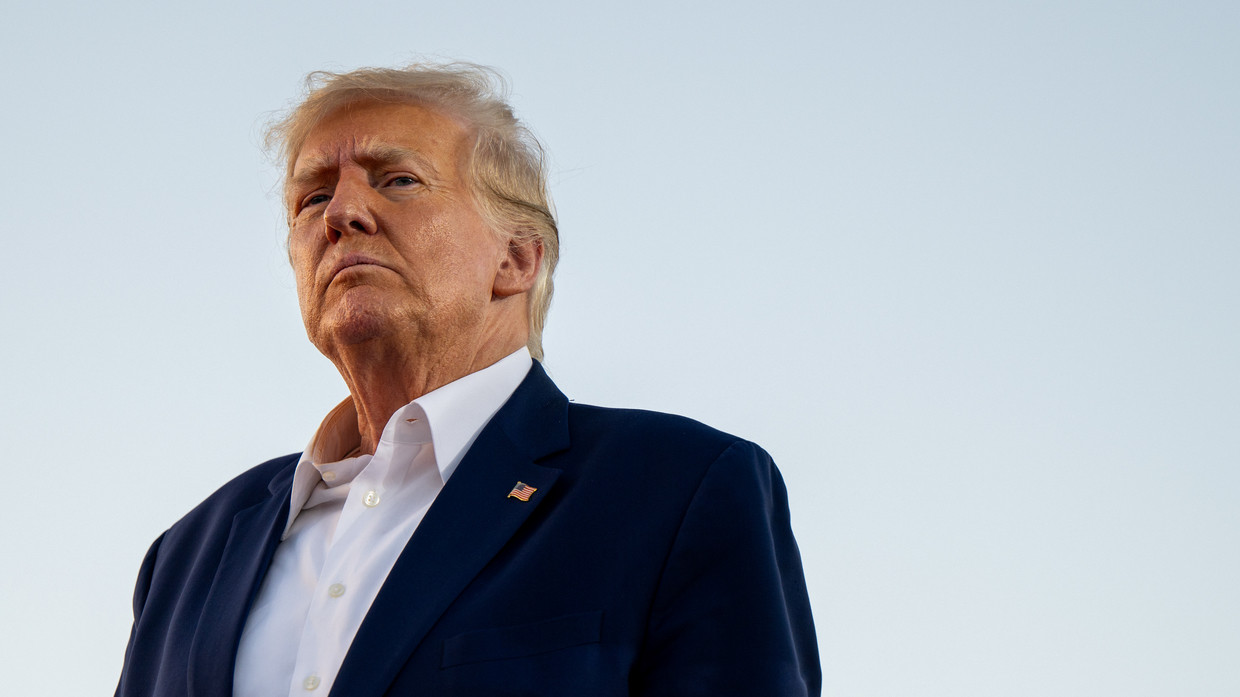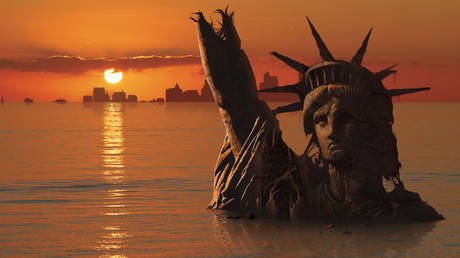The verdict in Donald Trump’s hush money trial has bestirred the usual characters in all the predictable ways. And never far from anybody's lips is the word ‘democracy’.
“Donald Trump is threatening our democracy," President Joe Biden himself opined, calling the ex-president's questioning of the verdict "dangerous.“ The editorial board of the New York Times lauded the “remarkable display of the democratic principles” on display in convicting a former president, arguing that this proves that even men as powerful as Trump are not above the law.
The word democracy is everywhere in the Western world these days. Hardly a day goes by without pleas to defend it, protect it, fight against its sworn enemies, or celebrate its virtues with pompous clichés. Precise and neutral usage has given way to an ideological tinge that is as electrified as it is vague.
One senses the word is invoked in defense of a certain decaying America-led order and the elite institutions that uphold it – and yet, like its cousin the ‘rules-based-order’, it is never quite defined. In the 2024 US presidential election, we are told, democracy itself is on the ballot. Whatever that means. If Trump is the archetypal demonic figure in the eyes of polite society, democracy is the bulwark against him.
Democracy has been imbued with a primitive metaphysical potency that almost seems a stand-in for religious faith.
Biden’s 2023 State of the Union address contained an exhortation to cure cancer once and for all, followed immediately by a grand summation of what has underpinned all American successes for all time – and, implicitly, will underpin futures ones, such as curing cancer.
“Folks, there’s one reason why we’ve been able to do all of these things: our democracy itself.”
Biden concluded: “With democracy, everything is possible. Without it, nothing is.”
Turn back the clock a century or so, replace the word ‘democracy’ with ‘the grace of God’ and give the same speech and nobody would bat an eye.
Democracy is a shield against accusations of wrongdoing. The defense being mounted against the war crimes charges facing the Israeli leadership is that the country is a democracy. As if how a government elects its leaders somehow changes the laws of war.
But what is curious is that this nauseating ubiquity of the word democracy has coincided with a period of deep dysfunction in actual self-proclaimed democracies. The more it is talked about, the less it seems to work and the larger the chasm between what is proclaimed and what is practiced. Many of the countries most vocally proclaiming democracy are the ones at the forefront of implementing highly undemocratic policies.
It would be easy to become carried away pointing out the blatant hypocrisy in the Western embrace of all things democratic while at the same time leaning hard into authoritarian tendencies. Take your pick of stories: Earlier this month, for example, a German court rejected an AfD complaint about the classification of its youth organization as an extremist movement, meaning Germany’s domestic intelligence service can continue to monitor the activities and communications of the party itself. This was hailed as a victory by the government. “Today’s ruling shows that we are a democracy that can be defended,” Interior Minister Nancy Faeser said.
Clearly, for the current Western elites, democracy has come to mean a system not intended to be run democratically in response to the will of the people, but run by self-proclaimed democrats.
But more interesting than simply laying out further instances of double standards and hypocrisy is to seek to grasp what explains the proliferation of democracy as a meme in exact proportion to the decline of the real thing. After all, the word democracy wasn’t always on the tip of every politician’s lips.
Even Woodrow Wilson, the consummate evangelist of the American political order, whose “make the world safe for democracy” quote is now indelibly associated with his name, did not play loose with facile references to the political system through which everything is apparently possible. At the Paris Peace Conference in 1919 upon the conclusion of World War I, Wilson’s opening speech contained only one passing and modest reference to democracy.
And yet at that time, America could much more reasonably than now lay claim to being the world’s preeminent democracy. What to make of this paradox?
Offering a framework to think about this phenomenon is the South Korean-German philosopher Byung-Chul Han in his most recent book, called ‘Crisis of Narration’. “A paradigm becomes a topic… only when there is a deep-seated alienation from it,” Han argues. “All the talk about narratives suggests their dysfunctionality,” he says. In other words, the fact that democracy has become a hot topic and that a narrative is being projected about it are themselves signs that something is amiss.
Han continues by explaining that as long as a narrative serves as an “anchor in being” – an organic part of the fabric of life that provides meaning and orientation – there is no need for such exaggerated talk about narratives. But, Han explains, the “inflation in the use of such concepts begins precisely when narratives lose their original power, their gravitational force, their secret and magic.” He concludes by saying that “once they are seen as something constructed, they lose their moment of inner truth.”
Whether American democracy – or any other Western democracy – ever truly possessed any “inner truth” is a matter for historians to decide, but there undoubtedly was a time when a democratic political culture was simply ‘lived’ rather than constantly defended, attacked, or invoked. What was on the ballot was not democracy itself but simply whatever batch of politicians had emerged from the democratic process.
Prior to our contentious era, Western democracy was lived with the sort of assumed assurance that comes from a worldview that has not yet been shattered. That does not mean that politics didn’t have its fair share of all the usual bickering, backstabbing, sophistry, chicanery, and even outright dysfunction. Read any account of the presidency of Warren Harding to be disabused of that illusion – the term ‘smoke-filled room’ derives from that era. But what is important is not the relative merits of the politicians of one era or another but rather the fact that political life took place within a system that itself was seen as secure and to whose defense society wasn’t perpetually being exhorted to rush.
History offers other examples of a once vital political theory being reduced to an obsessed-over narrative in its moment of terminal crisis. Most medieval monarchs believed that they derived their authority directly from God and were not accountable to earthly authorities. The strong ecclesiastical element in ancient coronation ceremonies attests to the intermeshing of the divine and earthly kingdoms. But in medieval Europe, this was never defined with any rigor, nor had it taken on the contours of a political system that would then need to be defended, justified, or really even explained. Kings did not offer daily reminders of their communion with God.
It only congealed into a succinct political doctrine – called the ‘divine right of kings’ – quite late in the game, when any real conviction that kings were truly God’s emissaries on Earth had all but disappeared. The theory was most comprehensively developed by King James VI of Scotland (later James I of England) – he is even credited with coming up with the expression ‘divine right of kings’. To use Han’s language, something that had at one time been an “anchor in being” had been turned into a narrative – even a meme, we could say. When King James stood up in front of Parliament in 1610, (it was not exactly a State of the Union address) and declared “the state of monarchy is the supremest thing upon earth,” little did he suspect that the doctrine he was espousing so vigorously was mere decades away from disappearing forever – at least from Europe.
His reactionary and hopelessly out-of-touch son, Charles I, continuing in his father’s tradition of believing he answered only to God, ended up being shortened by a head over the matter. Elsewhere in Europe, similar processes were playing out. In France, Louis XIV saw himself as God’s representative on Earth, endowed with a divine right to wield absolute power. He spent much of his time quashing brewing rebellions and establishing his legitimacy by the sweat of his brow. But his preposterous, primitive, and overwrought claims – the type that would fit nicely into Biden’s State of the Union address – can only be seen as a telltale sign of crisis.
For many hundreds of years, Europe produced good kings and bad kings, but even the reign of a terrible king did not undermine belief in monarchy as an institution or in the implicit connection between the divine and earthly kingdoms. Monarchy itself was not ‘on the ballot’ every time a new king took the throne. But when the magic disappeared and kings found themselves on the defensive is exactly when they began to invoke the importance of their office with exaggerated effect. It is not hard to see the insecurity lying just beneath the surface.
The cartoonishly inflated reaction to the threats supposedly emanating from Trump and others menacing the temple of democracy is merely a small part of a much larger drama – and no less a manifestation of insecurity. What this signifies is that the magic has drained out of the current iteration of Western liberal democracy. It will be defended, attacked, idealized, invoked all the same – until it simply disappears and is replaced with something else.
The statements, views and opinions expressed in this column are solely those of the author and do not necessarily represent those of RT.



